News
-
 Health & Medicine
Health & MedicineStimulating spleens with ultrasound hints at a treatment for inflammation
Using an intense kind of ultrasound stimulation against inflammation holds promise but so far has been tested only in rodents and human blood samples.
-
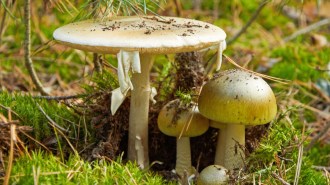 Health & Medicine
Health & MedicineScientists may have found an antidote for death cap mushrooms
A dye countered the effects of a mushroom toxin in human cells and mice. If the antidote does the same in people, it has potential to save lives.
-
 Neuroscience
NeuroscienceA rare mutation helped one man stave off Alzheimer’s for decades
The brain of a Colombian man with an inherited form of Alzheimer’s may hint at ways to halt or slow the progression of the disease.
By Simon Makin -
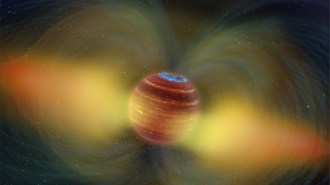 Astronomy
AstronomyThe first radiation belt outside the solar system has been spotted
Encircling a Jupiter-sized body about 18 light-years from Earth, the radiation belt is 10 million times as bright as the ones around Jupiter.
-
 Climate
ClimateThere’s good and bad news with California’s electric vehicle program
The electric vehicle program is reducing carbon dioxide emissions but also shifting the pollution burden to the state’s most disadvantaged communities.
-
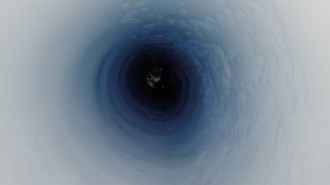 Life
LifeIn one lake deep under Antarctica’s ice, microbes feast on ancient carbon
Microorganisms living in a lake beneath the ice sheet in West Antarctica feed on ocean carbon that was deposited 6,000 years ago.
By Freda Kreier -
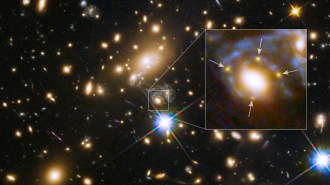 Astronomy
AstronomyA reappearing supernova offers a new measure of the universe’s expansion
Supernova Refsdal blew up once but burst into view at least five times. The timing of its appearances provides clues to how fast the universe is growing.
-
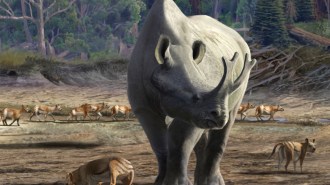 Paleontology
Paleontology‘Thunder beast’ fossils show how some mammals might have gotten big
Rhinolike mammals called brontotheres repeatedly evolved into bigger and smaller species, a fossil analysis shows. The bigger ones won out over time.
By Elise Cutts -
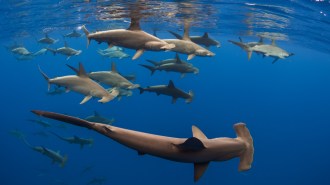 Animals
AnimalsWhy some hammerhead sharks seem to ‘hold their breath’ during dives
Scalloped hammerhead sharks in Hawaii seem to limit the use of their gills during deep dives to prevent losing heat to their surroundings.
By Freda Kreier -
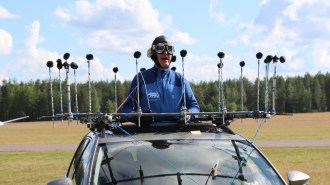 Physics
PhysicsScience explains why shouting into the wind seems futile
Sending a sound upwind, against the flow of air, makes the sound louder due to an acoustical effect called convective amplification. Sound sent downwind is quieter.
-
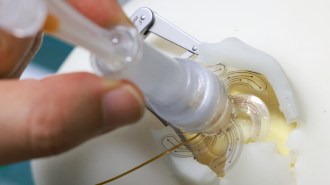 Tech
TechA flower-shaped soft robot could make brain monitoring less invasive
Once inserted in the skull, the device unfurls flexible sensors that can monitor the brain's electrical activity less invasively than current methods.
By Bob Hirshon -
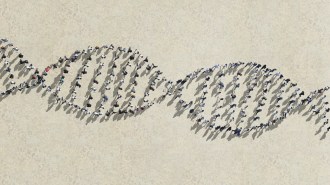 Life
LifeThe new human pangenome could help unveil the biology of everyone
The deciphered DNA includes never-before-explored parts of the genome and better represents the genetic diversity of all humans.